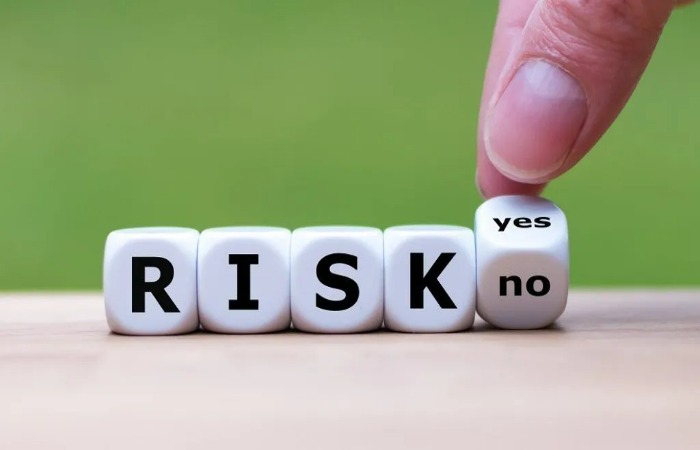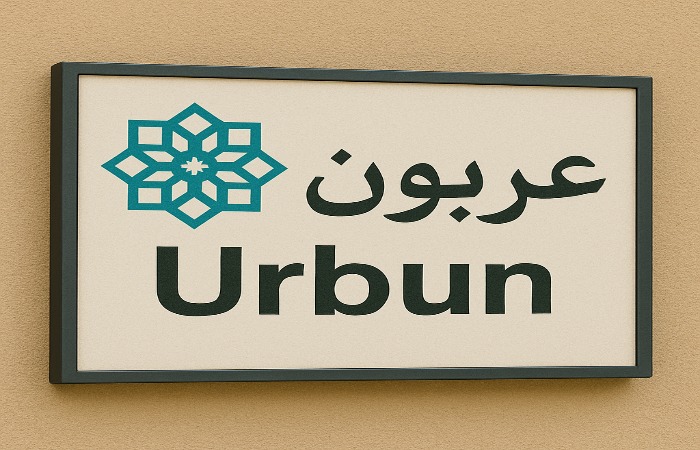Fear of risk is one of the central challenges in a Muslim’s spiritual and personal life. In Islam, risk is the possibility of facing danger, harm, or loss. While this is similar to the general idea of risk, a key difference for Muslims is the belief that all events are predestined by Allah. Because of this belief in fate, many Muslims incorrectly think that they are fated to face certain dangers, which leads them to take unnecessary risks. However, risk is an unavoidable part of life and it's a mistake to believe that all outcomes are already decided. Choosing comfort and avoiding change are often perceived as safe options. However, Islamic tradition views inaction as potentially more harmful than risk itself.
Risk management in the Quran
“Indeed, Allah would never change a people’s state ˹of favour˺ until they change their own state ˹of faith˺. And if it is Allah’s Will to torment a people, it can never be averted, nor can they find a protector other than Him.” - (Quran, 13:11)
Allah is the only one who knows everything, including the future. We humans don't have this knowledge, and only Allah has the power to change things and make them happen. Because of this, it's important to pray to Allah and follow His will.
However, this doesn't mean we should just accept hardship. The Quran teaches that if we want to change our situation, we need to make an effort. It encourages us not to be lazy and simply pray/ When you face risks, you should plan carefully, take the right steps, and then trust in Allah to help your efforts succeed.
Anas ibn Malik reported: A man said, “O Messenger of Allah, should I tie my camel and trust in Allah, or should I leave her untied and trust in Allah?” The Prophet, peace and blessings be upon him, said, “Tie her and trust in Allah.” - (Sunan al-Tirmidhi 2517).
This hadith is an excellent example of how to manage risk. It shows that while it's important to trust in Allah, we must also do our part by taking all the necessary steps to reduce the possibility of losses.
The Dangers of Inaction
Inaction undermines the individual in three dimensions:
Faith. Avoiding steps out of fear undermines tawakkul (trust) in Allah.
Character. Constant hesitation breeds passivity and dependence.
Opportunities. Time is lost, and missed chances rarely return.
The Prophet ﷺ said: “Take advantage of five before five: your youth before your old age, your health before your illness, your riches before your poverty, your free time before your work, and your life before your death.” - (Shu’ab al-Imān lil-Bayhaqī 10250).
In Islam, we aren't meant to simply leave everything to Allah and accept whatever happens. Instead, we are expected to make an effort to achieve our goals. Allah will help us, but only after we've taken steps to help ourselves.
This means that if you want a project to succeed, you must work to reduce the chance of risks affecting it. The only way to do this is by using risk management strategies.
Framework of Risk in Islam: Rightous Risk vs. Recklessness
In Islam, risk is not pursued for its own sake.Rather, it is tolerated — and sometimes even encouraged - when it is part of a lawful, productive, and beneficial endeavor. The Islamic framework of risk distinguishes carefully between two categories of risk:
- Constructive risks inherent to productive effort (permissible, rewarded).
- Destructive risks that stem from recklessness, exploitation, or chance (prohibited).
Constructive risk is the type of uncertainty that naturally arises in productive economic and social activity. It is inseparable from effort and creativity, and when undertaken with the right intention and preparation, it becomes not only permissible but also rewarded.
Conditions for Permissibility
Constructive risk is acceptable under Shariah when three conditions are fulfilled:
- Alignment with a lawful and good purpose – the goal must be halal, free from prohibited elements, and directed toward benefit.
- Reasonable preparation and planning – one must take all practical steps to reduce unnecessary harm or uncertainty.
- Reliance on Allah rather than chance – tawakkul requires that a believer acts responsibly, then entrusts the outcome to Allah.
Example:
A merchant selling perishable goods accepts the risk that food might spoil before it is sold.
Principle: The risk is tied to value creation, since trade and distribution benefit society.
Shariah justification: The hardship of possible loss is balanced by potential benefit and reward, making such risk part of legitimate economic activity.
This type of risk reflects that the value of an act is not in the hardship itself, but in its usefulness. Effort and hardship are acceptable when they serve a meaningful and beneficial purpose.
Recklessness represents the opposite side of the spectrum. It is characterized by entering into risks that are unnecessary, harmful, or prohibited by Shariah. Such risks do not create real value; instead, they redistribute wealth unfairly, often at the expense of justice and mutual consent.
Characteristics of Recklessness:
- Pursuit of the forbidden.
- Negligence of obvious dangers.
- Lack of preparation or planning.
Examples:
- Gambling (qimar).
- Speculative contracts driven by uncertainty (gharar).
- Highly uncertain transactions where loss for one party is gain for another without value creation.
Principle: These risks involve deception, uncertainty, and harm rather than benefit.
Shariah justification: Muslim jurists prohibited them because they undermine fairness, justice, and social welfare.
Here, hardship is empty: it produces no constructive benefit and leads only to exploitation or meaningless suffering.
Risk, Hardship, and Usefulness
Islam does not glorify hardship for its own sake. A deed is judged by its usefulness, not merely by the level of struggle or suffering it requires.
- Not all hardship is beneficial. Suffering without purpose brings no reward.
- Hardship linked to benefit is valuable. When risk is tied to productive effort and social good, it is justified.
Integration with Qadr (Predestination)
While Islam acknowledges that outcomes of the activity are subject to divine decree, human responsibility requires integration your action with Qadr (predestination):
- Taking permissible risks through effort.
- Avoiding prohibited activities by Sharia.
- Trusting the results to Allah (tawakkul).
The Educational Function of Risk
In Islam, risk is not only tolerated as part of productive life - it also plays an educational role in shaping character. By facing uncertainty with faith, preparation, and responsibility, believers develop virtues that cannot be formed in comfort or passivity.
1. Decisiveness
Right risk forces a person to make choices and commit to them. Instead of remaining paralyzed by fear of the unknown, the believer learns to weigh options, seek counsel (shura), perform istikhara, and act with conviction. This decisiveness strengthens leadership qualities and protects against hesitation that wastes time and opportunities.
- The Quran praises those who, after consultation, “Once you make a decision, put your trust in Allah. Surely Allah loves those who trust in Him.” (3:159).
2. Patience (Sabr)
Risk often involves delays, setbacks, or unexpected outcomes. Engaging in permissible risk teaches patience, the ability to persevere without losing hope, and the discipline to keep working despite uncertainty.
- The Prophet ﷺ said: “Know that there is much good in being patient with what you detest, victory will come with patience, relief will come with affliction, and ‘with the hardship will come an ease.” - (Musnad Aḥmad 2803).
3. Resilience (Istiqamah)
Repeated exposure to risk builds resilience - the strength to recover from losses and continue striving. A believer who faces challenges, adapts, and rises again gains inner stability and endurance. Unlike recklessness, which destroys, right risk strengthens the soul by teaching reliance on Allah in moments of difficulty.
- In the Quran Allah promises: “Indeed, those who have said, "Our Lord is Allāh" and then remained on a right course - the angels will descend upon them, [saying], "Do not fear and do not grieve but receive good tidings of Paradise, which you were promised.” - (41:30).
Conclusion
Islam does not regard risk as a reckless gamble with fate, but as a measured act of responsibility rooted in faith. The believer is not called to chase danger for its own sake, nor to withdraw from life in fear of uncertainty. Instead, Islam teaches that risk must be approached with lawful intent, preparation, and reliance upon Allah.
When guided by piety (taqwa), risk becomes an arena where faith is tested, character is refined, and reward is earned. The Prophet ﷺ reminded us that tying one’s camel and then placing trust in Allah is the proper balance between effort and tawakkul. This balance transforms risk into an act of worship, rather than recklessness.
Right risk opens doors that will never open for those who remain standing still. As Allah says: “And whoever fears Allah — He will make for him a way out and will provide for him from where he does not expect” (Qur’an, 65:2–3). The greatest risk, then, is not stepping forward with trust in Allah, but remaining where one is. And one must remember: opportunities granted by Allah may not return once they are missed.
Thus, the Islamic perspective reframes risk: it is not a gamble with destiny, but a conscious step into the unknown with trust in the One who controls all outcomes. The safest choice is not avoiding action, but ensuring that action is righteous, purposeful, and aligned with divine guidance.















